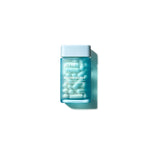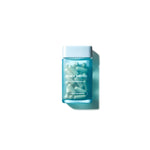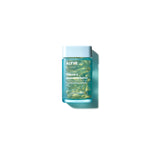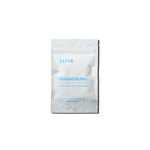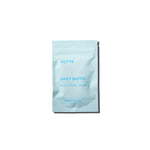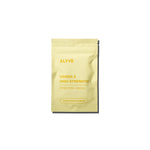The Benefits of Cayenne Pepper
Cayenne Pepper
Cayenne Pepper (Capsicum Annuum) is well-known for its ability to boost metabolism and aid digestion, thanks to its active compound capsaicin. This fiery ingredient promotes thermogenesis, helping the body burn fat more efficiently. It also enhances circulation, reduces appetite, and offers pain-relief benefits when applied topically. Cayenne is a popular ingredient in weight management formulas.
Key highlights of Cayenne Pepper
- Increases weight loss
- Is associated with a lower risk of obesity
- Supports the immune system
- Reduces pain and inflammation
- Speeds up metabolism
- Has antioxidant properties
Biochemistry Timeline
Cayenne pepper supplementation may take up to three months to show benefits, as its active compound, capsaicin, gradually influences metabolism, digestion, and overall health, requiring consistent use for noticeable effects.
What is Cayenne Pepper?
Renowned for the fiery taste it brings to food which many love, Cayenne Pepper comes from a group of plants called Capsicum (chilli peppers). Studied extensively for its many properties including reducing inflammation, Cayenne Pepper’s bright colour comes from the plant chemicals they contain called carotenoids. These chemicals act as antioxidants in humans, meaning they have the ability to fight free radicals which, left unchecked, can cause damage to body cells.
In addition to their anti-inflammatory and antioxidant benefits, Capsicum supports the health of the cardiovascular system. They have been used medicinally in many cultures to help stimulate digestion or relieve pain for example and studies show that capsaicin, the molecule responsible for giving chillies their kick, has multiple benefits for metabolic health, helping to stimulate weight loss and prevent obesity.
The Amazing Benefits of Cayenne Pepper:
Immunity Function and Ageing
Cayenne peppers are rich in powerful antioxidants, including vitamin C, vitamin E, lutein, zeaxanthin, and beta-carotene. These antioxidants play a crucial role in neutralizing free radicals, unstable molecules that can cause cellular damage. Free radicals, if left unchecked, can harm immune cells, leading to reduced immune function and accelerated ageing. The presence of these antioxidants in cayenne peppers helps protect the body’s cells from oxidative stress, thereby supporting overall health, enhancing immune function, and contributing to healthier, more youthful skin.
Anti-Inflammatory and Anti-Cancer Properties
Capsicum also has anti-inflammatory properties and numerous studies suggest that the ability to tolerate and control inflammation correlates with greater immune cell function and protection against infectious diseases.
Another significant benefit of capsaicin, the active component in cayenne peppers, is its anticancer activity. Studies have shown capsaicin can suppress tumour growth and induce autophagy, or ‘cell suicide,’ in certain cancer cells. This highlights the potential of cayenne peppers in supporting overall health and preventing various diseases.
Metabolism
Chronic conditions such as heart disease and diabetes are on the rise in the UK, and being overweight significantly increases the risk of developing these illnesses. Data reveals that consuming foods containing chilli peppers, such as cayenne, is associated with lower levels of obesity. Capsaicin, as previously mentioned, is the active compound in chilli peppers and can boost metabolism, reduce appetite, and increase fat oxidation, thereby helping in weight management.
As Capsaicin may have the ability to boost metabolism, this can lead to an increase in energy expenditure. A preliminary study found that eating a meal with 1g of pepper increased energy expenditure and consequently the calories burnt throughout the day, which may aid in weight management.
In another study involving healthy individuals, those who took capsaicin for 12 weeks experienced a significant reduction in body fat, losing nearly 6% compared to those who took the placebo.
Capsaicin helps reduce appetite, leading to lower caloric intake. These findings suggest that capsaicin supplementation can be an effective component of a weight loss strategy, particularly in reducing body fat percentage and supporting overall metabolic health.
Summary
Cayenne pepper (Capsicum annuum) contains capsaicin, known for boosting metabolism, aiding digestion, and promoting thermogenesis, which helps with fat burning. It enhances circulation, reduces appetite, and provides pain relief. Benefits can take up to three months to manifest. Rich in antioxidants like vitamins C and E, cayenne supports immune health and may help reduce inflammation and obesity risk. Typical dosages range from 30 to 120 mg of capsaicin daily, but potential side effects include gastrointestinal discomfort. Consult a healthcare professional before starting supplementation, especially if taking medications.
FAQs
Can cayenne pepper interact with medications? Yes, cayenne pepper can interact with blood thinners, certain heart medications, and medications for digestive issues. It’s important to consult a healthcare professional before starting supplementation, especially if you’re on medication.
Are there any side effects of taking cayenne pepper? Common side effects may include gastrointestinal discomfort, heartburn, or sweating. People with sensitive stomachs or certain medical conditions should consult a healthcare provider before starting supplementation.
What is the recommended dosage for cayenne pepper supplements? Typical dosages range from 30 to 120 mg of capsaicin per day. However, it’s best to start with lower amounts and adjust based on individual tolerance and health goals.
Research:
- Granato, M., Gilardini Montani, M. S., Filardi, M., Faggioni, A., & Cirone, M. (2015). Capsaicin triggers immunogenic PEL cell death, stimulates DCs and reverts PEL-induced immune suppression. Oncotarget, 6(30), 29543–29554.
- Zheng, J., Zheng, S., Feng, Q., Zhang, Q., & Xiao, X. (2017). Dietary capsaicin and its anti-obesity potency: from mechanism to clinical implications. Bioscience reports, 37(3), BSR20170286.
- Rogers, J., Urbina, S. L., Taylor, L. W., Wilborn, C. D., Purpura, M., Jäger, R., & Juturu, V. (2018). Capsaicinoids supplementation decreases percent body fat and fat mass: adjustment using covariates in a post hoc analysis. BMC obesity, 5, 22.
- Ludy, M. J., & Mattes, R. D. (2011). The effects of hedonically acceptable red pepper doses on thermogenesis and appetite. Physiology & behavior, 102(3-4), 251–258.
- Puertollano, M. A., Puertollano, E., de Cienfuegos, G. Á., & de Pablo, M. A. (2011). Dietary antioxidants: immunity and host defense. Current topics in medicinal chemistry, 11(14), 1752–1766.
- Johnson E. J. (2002). The role of carotenoids in human health. Nutrition in clinical care : an official publication of Tufts University, 5(2), 56–65.
- Chung, M-K., & Campbell, J, N. (2016). Use of Capsaicin to Treat Pain: Mechanistic and Therapeutic Considerations. Pharmaceuticals, 9 (4), 66.
- Yoshioka, M., Imanaga, M., Ueyama, H., Yamane, M., Kubo, Y., Boivin, A., St-Amand, J., Tanaka, H., & Kiyonaga, A. (2004). Maximum tolerable dose of red pepper decreases fat intake independently of spicy sensation in the mouth. The British journal of nutrition, 91(6), 991–995.
- Jiménez-Martínez, P., Cornejo-Daza, P. J., Sánchez-Valdepeñas, J., Asín-Izquierdo, I., Cano-Castillo, C., Alix-Fages, C., Pareja-Blanco, F., & Colado, J. C. (2023). Effects of different phenylcapsaicin doses on resistance training performance, muscle damage, protein breakdown, metabolic response, ratings of perceived exertion, and recovery: a randomized, triple-blinded, placebo-controlled, crossover trial. Journal of the International Society of Sports Nutrition, 20(1), 2204083.
- Zhang, W., Zhang, Q., Wang, L., Zhou, Q., Wang, P., Qing, Y., & Sun, C. (2023). The effects of capsaicin intake on weight loss among overweight and obese subjects: a systematic review and meta-analysis of randomised controlled trials. British Journal of Nutrition,130 (9), 1645-1656.
